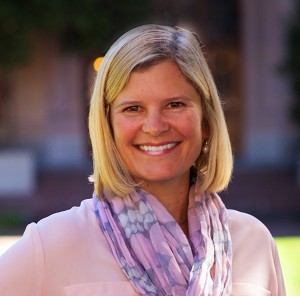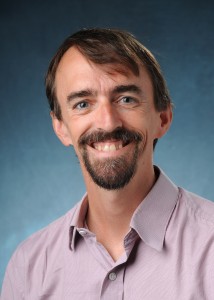 Philip Bell, University of Washington
Philip Bell, University of Washington
Philip Bell is a professor of the Learning Sciences & Human Development and holds the Shauna C. Larson Chair in Learning Sciences. He is executive director of the UW Institute for Science & Math Education focused on equity-focused innovation in K-12 STEM education, and he is co-director of the Learning in Informal and Formal Environments (LIFE) Science of Learning Center. Bell pursues a cognitive and cultural program of research across diverse environments focused on how people learn in ways that are personally consequential to them. He has studied everyday expertise and cognition in science and health, the design and use of novel learning technologies in science classrooms, youth argumentation, culturally expansive science instruction, and scaled implementation of educational improvement. Bell served as a member of the Board on Science Education with the National Academy of Sciences for eight years, co-chaired the National Research Council consensus report effort on Learning Science in Informal Environments and served on the committee of the NRC Framework for K-12 Science Education that was used to guide development of Next Generation Science Standards. He has a background in human cognition and development, science education, computer science, and electrical engineering.
 Angela Calabrese Barton, Michigan State University
Angela Calabrese Barton, Michigan State University
Angela Calabrese Barton is a professor in teacher education at Michigan State University. Her research focuses on issues of equity and social justice in science education, with a particular emphasis on the urban context. Drawing from qualitative and critical/feminist methodologies, she conducts ethnographic and case study research in urban community- and school-based settings that targets the science teaching-learning experiences of three major stakeholder groups: upper elementary and middle school youth, teachers learning to teach science for social justice, and parents engaging in their children’s science education. She also engages in curriculum research and development that links nutrition and science literacies in the upper elementary and middle school classroom. She is currently co-editor for the Journal of Research in Science Teaching.
Allison Druin, University of Maryland
Allison Druin is Chief Futurist for the University of Maryland’s Division of Research, a Professor in the iSchool, and a researcher in the Human-Computer Interaction Lab. As the University’s first Chief Futurist, she works with faculty throughout campus on research strategic planning and partnership development. In her own research, for over 17 years, she has led design teams of children, computer scientists, educators and more to develop new educational technologies for children with co-design methods. Druin’s work has included developing new mobile technologies for storytelling, new digital libraries for cultural tolerance, and new robotic toys for active learning. Her co-design team has partnered with numerous organizations over the years, which have included the U.S. National Park Service, UNICEF, National Geographic, and Nickelodeon (where they won an Emmy for their shared design, “the do not touch” button).
 Leslie Herrenkohl, University of Washington
Leslie Herrenkohl, University of Washington
Leslie Rupert Herrenkohl, Ph.D. is Co-Director of the 3DL Partnership and Professor in the College of Education at the University of Washington. She is a developmental psychologist and learning scientist who is fascinated by how people learn. She brings a holistic, socio-cultural approach to examine how people learn concepts, develop skills, and shift their participation to become new people through their experiences. She considers how social and emotional dimensions intersect with the traditional intellectual and academic perspectives in learning sciences research.
As a designer, Dr. Herrenkohl is interested in creating environments to support powerful learning that is conceptually rich, personally meaningful, and culturally relevant. She often designs learning environments and then studies how people learn within them. In order to do this work, she has participated in many generative partnerships with practitioners. These collaborations give her a deep appreciation for the need to integrate theory and practice and to conduct iterative research to better understand the impact of particular approaches and strategies. She is excited to apply her research interests and expertise to the 3DL Partnership’s emphasis on community collaboration, design-based intervention research, networked improvement communities, developmental evaluation and other contemporary approaches to engaging research to better guide decision-making around the design and evaluation of learning opportunities.
 Erin Knight, Badge Labs
Erin Knight, Badge Labs
Erin is an education technology executive and entrepreneur. She is the founder of the Open Badges movement, which is a new system for credentialing and accreditation, and for supporting broader learning across the Web and lifetimes. She wrote the initial white paper on badges that laid the foundation for the work to-date, and led the development of the technical and social infrastructure through Mozilla. She founded and directed the Badge Alliance, a network of over a thousand organizations collaborating on building and growing an open badging ecosystem. She spearheaded the Chicago Summer of Learning and initial Cities of Learning work, and now leads the growing Maine State of Learning initiative. She currently runs Badge Labs, a product, services and implementation firm focused on catalyzing a new culture of learning, identity and hiring. Formerly, Erin ran an education technology research center at University of California-Berkeley and worked for many years at Blackboard in the early days of online learning. She lives in Portland, Maine with her kids and chocolate labs.

William Penuel, University of Colorado Boulder
Bill Penuel is professor in educational psychology and the learning sciences in the School of Education at the University of Colorado Boulder. His research focuses on learning with digital media in both formal and informal settings. One strand of research focuses on how young children learn literacy and science skills through joint engagements with media with peers and preschool teachers. Another strand focuses on the design and implementation of innovative technologies to support subject matter learning in math and science. A third examines how youth can use digital tools for digital storytelling to communicate findings from action research in their communities. Penuel’s research has appeared in the American Educational Research Journal, Teachers College Record, the American Journal of Evaluation, Science Education, and the Journal of the Learning Sciences. He is currently on the editorial board for Teachers College Record, American Journal of Evaluation, and Cognition and Instruction.
 Carrie Tzou, University of Washington Bothell
Carrie Tzou, University of Washington Bothell
Carrie Tzou is an Assistant Professor in science education at UW Bothell. She holds a Ph.D. in Learning Sciences from Northwestern University and an M.S. in Teaching and Learning with a concentration in science education from Vanderbilt University. Her background includes experience as a bench scientist and as a middle school science and health teacher.
Tzou’s research has three major components, all connected with an interest in addressing issues of equity and social justice in science and environmental science education: (1) ethnographic work to understand how youth and their communities are positioned through place-based education, (2) design-based research to design curricula to bring youth’s out-of-school science and cultural practices into science and environmental science teaching, and (3) research and design of elementary and secondary preservice teacher education that explores how to orient preservice teachers to the sophisticated learning and identities that their students construct both in and out of school in order to make science more accessible to all of their students.